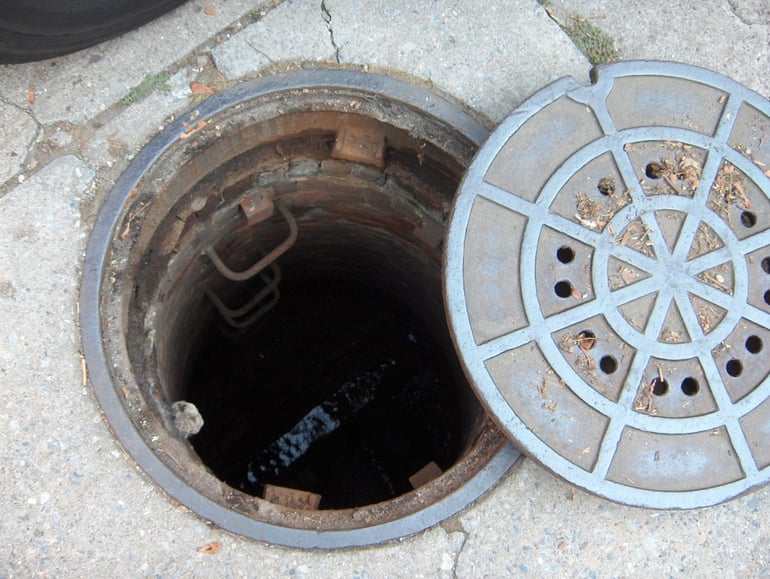There are many advantages of getting certified in a variety of educational health and safety courses, including minimizing workplace injuries and being more prepared for workplace emergencies. There are also a myriad of other reasons why companies invest thousands of dollars annually on health and safety lunch and learns, courses, and certifications -- just like we had mentioned in our previous blog, How Important Is Workplace Health and Safety. But have you considered that having additional health and safety certifications under your belt could help launch your career in the construction industry or perhaps help you advance from your current position?
These courses vary in instruction time, prerequisites, and completion requirements, however, each of them just might give you the competitive advantage you need to move forward in your career.
- Occupational First Aid (Level 1, 2, 3)

Purpose
The purpose of Occupational First Aid (OFA) courses is to educate and prepare employees for medical emergencies that may happen in the workplace. There are three levels of OFA courses designed for specific workplaces, depending on workplace size, distance to medical support, industry hazard rating, and access to medical aid.
Although OFA Level 1 is considered the basic first aid course, it is not necessary to take this course as a prerequisite for levels 2 and 3; neither is level 2 a prerequisite for level 3. In order to receive the OFA certificate for any level, participants have to be at least 16 years old (often the minimum age for most courses), be present during instruction time, and pass a multiple choice exam (and practical competency test for levels 2 and 3) that covers the course material. After completing any OFA course level, the certification will be valid for three years.
Career Advancement
Attaining an OFA certification can be helpful for a variety of roles and industries. To determine which OFA level is appropriate for you or your workplace, please review the following table and refer to Section 3.16 and Schedule 3-A of the Occupational Health and Safety Regulation.
|
OFA Certification Level |
Curriculum Overview |
|
20 minutes or less surface travel time from medical aid |
Instruction Time: 7 hours Designed for: Commonly used as a beginner/standard first aid course for security, police, first aid responce, nursing sectors, etc. Topics:
|
|
20 minutes or less surface travel time from medical aid
|
Instruction Time: 36-hours over 5 days, Statement of Fitness required Designed for: Attendants in urban areas, employers that require OFA Level 2 Certification for employees Topics:
|
|
Instruction Time: 70 hours over 2-week period, Statement of Fitness required Designed for: Remote/rural attendants or attendants on larger, urban job sites such as construction, manufacturing, or heavy industries Topics:
|

Purpose
The purpose of the TSC/CSO course is to help experienced construction workers advance their careers as a Trade Safety Coordinators or Construction Safety Officers. The TSC/CSO certification course covers a broad scope of information to prepare participants for this new career choice.
Career Advancement
Upon the completion of the program -- requirements included -- the TSC/CSO certification is valid for 3 years. Also, participants can apply for the professional designation CSO(P) for Applied Science Technologists and Technicians of BC (ASTTBC).
This program counts for 5 credits (2.5 credits per week) towards the BCCSP professional development or application.
According to PayScale, a career as a Construction Safety Officer in Vancouver, BC can be rewarded with a total pay between $44,227 to $81,627 approximately.
Curriculum Overview
|
Course |
Curriculum Overview |
|
Trade Safety Coordinator (TSC)
|
Instruction Time: 35-hours over 5 days Prerequisites: Be at least 16 years old and be physically able to perform tasks. OFA Level 1 is recommended but not required. Topics:
Cost: $699 per person plus GST (all course materials included) |
|
Construction Safety Officer (CSO)
|
Instruction Time: 35-hours over 5 days Prerequisites: Same as TSC + Completion of a TSC Course Topics:
Cost: $799 per person plus GST (all course material included) |

Purpose
The Fall Protection Awareness certification is an informative course to minimize fall injuries in the workplace. The purpose of the course is to help participants learn about their responsibilities when working in areas where fall hazards exist. Participants who take this course will also learn about the use and inspection of required equipment and the critical controls necessary to reduce the risk of a fall.
In order to receive the certification, participants are required to fully participate and attend the course dates and must achieve 70% on a multiple-choice exam. Upon successful completion, the certification will be valid for three years.
Curriculum
|
Course |
Curriculum Overview |
|
|
Instruction Time: 4 or 8 hours * 4 hour training is for a refresher course for those who have taken it before. 8 hour session is more appropriate for those who are taking the course for the first time. 8 hour class will include a certification and offer ample amount of hands-on training. Prerequisites: No previous training is required Topics:
Cost: 4-Hour Program: $125.00 per person plus GST (all course material included) 8-Hour Program: $225.00 per person plus GST (all course material included) |

Purpose
The Confined Space Awareness certification course is designed for workers that will be working around, entering, or providing stand-by for confined spaces. In this course, participants learn about how to identify confined spaces on the jobsite and how to assess and manage hazards.
Career Advancement
Similar to the Fall Protection Course, having the certification can set you apart from other job seekers, or help you to do your job better. Upon successfully completing the course and its requirements, the certification will be valid for three years.
Curriculum
|
Course |
Curriculum Overview |
|
|
Instruction Time: 8 hours Prerequisites: No previous training is required Topics:
Cost: $225.00 per person plus GST (all course material included) |
There are many courses you can take to increase help advance your career in the construction industry. Whether you have been an experienced construction worker or someone looking to apply for a new opportunity, having one or more of these certifications can set you apart from others looking to apply for the same job.
To register for any of these courses, please feel free to contact us and we will be able to sign you up right away.



